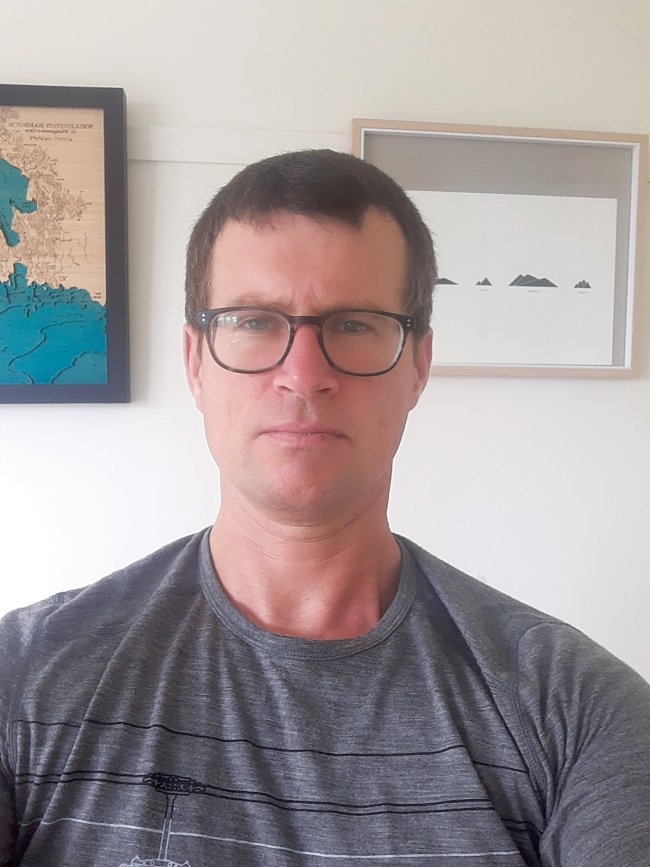Respiratory physician Lutz Beckert considers chronic obstructive pulmonary disease management, including the prevention of COPD, the importance of smoking cessation and pulmonary rehabilitation, and the lifesaving potential of addressing treatable traits. He also discusses the logic of inhaler therapy, moving from single therapy to dual and triple therapy when indicated, as well as other aspects of management
A COP-out on a #HealthyClimate?
A COP-out on a #HealthyClimate?

Given the weak outcome on fossil fuels, the agreement to set up a fund to compensate developing countries for climate change loss and damage will be sorely needed, write Dermot Coffey and Summer Wright
It was fossil fuel industry lobbyists who were present in record numbers dwarfing every country delegation except one
Over 35,000 people – including more than 100 heads of state and governments – gathered in the Red Sea resort of Sharm El-Sheikh in recent days to chart a way out of the world’s climate crisis. What did they achieve for climate and for health?
Sadly, delegates who argued that expanding oil and gas production is actually compatible with “net zero by 2050” succeeded in scuttling a proposed agreement to “phase down” all fossil fuels, putting the global warming 1.5°C target of the Paris Agreement – and a healthy planet now – further out of reach.
Seen in this context, the gathering’s agreement to set up a fund to compensate developing countries for loss and damage caused by climate change will be sorely needed.
Known as the 27th Conference of Parties to the UN Framework Convention on Climate Change (COP27), the event came hard on the heels of two hard-hitting reports.
The Lancet Countdown on Health and Climate Change, launched on 27 October, found among 43 indicators that heat exposure is a growing threat to health and wellbeing. Between 2000 and 2004 and 2017 and 2021, there has been a 68 per cent increase in heat-related mortality worldwide among people over the age of 65.
Deaths of New Zealanders over 65 from heat exposure, although coming off a relatively low base, rose by an alarming 165 per cent.
Meanwhile the UN NDC Synthesis Report, released the same day, concluded the combined climate pledges of 193 parties under the Paris Agreement add up to global warming this century by a full degree more than the critical 1.5 °C limit.
COP26 in Glasgow last year provided a glimmer of hope, due in part to the record number of health professionals advocating on the sidelines for a #HealthyClimate.
This year, it was fossil fuel industry lobbyists who were present in record numbers – at least 636, according to Global Witness – dwarfing every country delegation except one. United Arab Emirates, the petro state assuming the presidency for COP28, sent by far the largest number – 1060 delegates, in all.
Extreme weather events around the world caused damage worth US$253 billion (NZ412.64 billion) last year, including damage to hospitals and other healthcare facilities. The 1-in-100-year floods in Nelson and on the West Coast that forced the evacuation of Buller Hospital in July are just a taste of what more vulnerable countries are increasingly experiencing.
New Zealand’s announcement of a $20 million contribution to the Loss and Damage Fund scored headlines for climate change minister James Shaw. But as health professionals, we need to look behind the headlines in our work for a healthy climate and healthy people.
As a member of the New Zealand Climate Action Network, OraTaiao was represented at COP27 by Rhiannon Mackie and Kera Sherwood O’Regan. We were also connected with rangatahi Māori delegates Kaeden Watts and Tiana Jakicevich from the International Indigenous Peoples’ Forum.
Responding to Minister Shaw, Kaeden stressed that the $20 million is not new money. It’s money that’s been repurposed from funding commitments made at COP26 last year, he says.
“The actions from the New Zealand Government to put us forward as an international leader in climate change have been severely underwhelming.”
New Zealand was even named and shamed as “Fossil of the Day” on 15 November by our parent organisation, Climate Action Network International, for temporarily back-tracking on its commitments and seeking to delay the introduction of the Loss and Damage Fund.
Speaking on TVNZ Breakfast Kera Sherwood O’Regan added, “Climate change is already affecting many communities and those communities that it’s hitting first and worst are already dealing with other issues, such as indigenous peoples, disabled communities, countries in the Global South and things like that.”
The Loss and Damage Fund seeks to give a mechanism for the countries most responsible for historic and ongoing emissions to offer rapid redress to those less-resourced and vulnerable countries which bear the immediate brunt of climate change. This will finally correct to a degree the prevailing attitude of “we are all in this together” meaning in practice “I pollute, you pay.”
This international Loss and Damage Fund will raise interesting questions domestically as well. Once we acknowledge the obligation on the most climate-damaging nations to pay for the impacts of their pollution, we must ask the same question of our most well-resourced and climate-polluting groups within Aotearoa. These are often older, richer, land-owning, home-owning and Pākehā: What are their responsibilities to those most vulnerable to climate change in New Zealand?
One final positive point is that for the first time the “right to a clean, healthy and sustainable environment,” and the “right to health” as matters of concern when addressing climate change were specifically mentioned in the final agreement.
But this gives the impression of merely tinkering at the edges, and it’s hard to shake the feeling that COP27 represents yet another opportunity missed.
For health professionals now redoubling our efforts for a #HealthyClimate here and overseas, the last word should go to Kera Sherwood O’Regan: “This Loss and Damage Fund is really critical for communities who are on the front line. But if we’re not willing to take the initiative to actually cut fossil fuels and cut emissions at source, then we’re going to get a continuation of climate change, [and] we’re not going to meet that 1.5 °C target that is so essential, particularly for those of us in the Pacific.”
Dermot Coffey and Summer Wright are co-convenors of OraTaiao NZ Climate and Health Council
We're publishing this article as a FREE READ so it is FREE to read and EASY to share more widely. Please support us and the hard work of our journalists by clicking here and subscribing to our publication and website
Delivering for people and the planet – United Nations
Heat-related Mortality – The Lancet
Climate Plans Remain Insufficient: More Ambitious Action Needed Now – United Nations
636 fossil fuel lobbyists granted access to COP27 – Global Witness
COP27: Climate costs deal struck but no fossil fuel progress – BBC News
Funding arrangements for responding to loss and damage associated with the adverse effects of climate change, including a focus on addressing loss and damage – 27th Conference of Parties to the UN Framework Convention on Climate Change (COP27)
The 2022 report of the Lancet Countdown on health and climate change: health at the mercy of fossil fuels –The Lancet
New Zealand push for global action at COP27 on climate loss and damage – Media release, foreign affairs minister Nanaia Mahuta, climate change minister James Shaw
About the International Indigenous Peoples' Forum on Climate Change – International Indigenous Peoples’ Forum on Climate Change
Interview with Kaeden Watts on the slow progress at #cop27 | Full Interview – Newsroom/YouTube
Fossil Day 5: New Zealand’s Midnight Disappointment – Climate Action Network International
Climate Change: The Facts – TVNZ+









![Barbara Fountain, editor of New Zealand Doctor Rata Aotearoa, and Paul Hutchison, GP and senior medical clinician at Tāmaki Health [Image: Simon Maude]](/sites/default/files/styles/thumbnail_cropped_100/public/2025-03/Barbara%20Fountain%2C%20editor%20of%20New%20Zealand%20Doctor%20Rata%20Aotearoa%2C%20and%20Paul%20Hutchison%2C%20GP%20and%20senior%20medical%20clinician%20at%20T%C4%81maki%20Health%20CR%20Simon%20Maude.jpg?itok=-HbQ1EYA)
![Lori Peters, NP and advanced health improvement practitioner at Mahitahi Hauora, and Jasper Nacilla, NP at The Terrace Medical Centre in Wellington [Image: Simon Maude]](/sites/default/files/styles/thumbnail_cropped_100/public/2025-03/2.%20Lori%20Peters%2C%20NP%20and%20advanced%20HIP%20at%20Mahitahi%20Hauora%2C%20and%20Jasper%20Nacilla%2C%20NP%20at%20The%20Terrace%20Medical%20Centre%20in%20Wellington%20CR%20Simon%20Maude.jpg?itok=sUfbsSF1)
![Ministry of Social Development health and disability coordinator Liz Williams, regional health advisors Mary Mojel and Larah Takarangi, and health and disability coordinators Rebecca Staunton and Myint Than Htut [Image: Simon Maude]](/sites/default/files/styles/thumbnail_cropped_100/public/2025-03/3.%20Ministry%20of%20Social%20Development%27s%20Liz%20Williams%2C%20Mary%20Mojel%2C%20Larah%20Takarangi%2C%20Rebecca%20Staunton%20and%20Myint%20Than%20Htut%20CR%20Simon%20Maude.jpg?itok=9ceOujzC)
![Locum GP Helen Fisher, with Te Kuiti Medical Centre NP Bridget Woodney [Image: Simon Maude]](/sites/default/files/styles/thumbnail_cropped_100/public/2025-03/4.%20Locum%20GP%20Helen%20Fisher%2C%20with%20Te%20Kuiti%20Medical%20Centre%20NP%20Bridget%20Woodney%20CR%20Simon%20Maude.jpg?itok=TJeODetm)
![Ruby Faulkner, GPEP2, with David Small, GPEP3 from The Doctors Greenmeadows in Napier [Image: Simon Maude]](/sites/default/files/styles/thumbnail_cropped_100/public/2025-03/5.%20Ruby%20Faulkner%2C%20GPEP2%2C%20with%20David%20Small%2C%20GPEP3%20from%20The%20Doctors%20Greenmeadows%20in%20Napier%20CR%20Simon%20Maude.jpg?itok=B0u4wsIs)
![Rochelle Langton and Libby Thomas, marketing advisors at the Medical Protection Society [Image: Simon Maude]](/sites/default/files/styles/thumbnail_cropped_100/public/2025-03/6.%20Rochelle%20Langton%20and%20Libby%20Thomas%2C%20marketing%20advisors%20at%20the%20Medical%20Protection%20Society%20CR%20Simon%20Maude.jpg?itok=r52_Cf74)
![Specialist GP Lucy Gibberd, medical advisor at MPS, and Zara Bolam, urgent-care specialist at The Nest Health Centre in Inglewood [Image: Simon Maude]](/sites/default/files/styles/thumbnail_cropped_100/public/2025-03/7.%20Specialist%20GP%20Lucy%20Gibberd%2C%20medical%20advisor%20at%20MPS%2C%20and%20Zara%20Bolam%2C%20urgent-care%20specialist%20at%20The%20Nest%20Health%20Centre%20in%20Inglewood%20CR%20Simon%20Maude.jpg?itok=z8eVoBU3)
![Olivia Blackmore and Trudee Sharp, NPs at Gore Health Centre, and Gaylene Hastie, NP at Queenstown Medical Centre [Image: Simon Maude]](/sites/default/files/styles/thumbnail_cropped_100/public/2025-03/8.%20Olivia%20Blackmore%20and%20Trudee%20Sharp%2C%20NPs%20at%20Gore%20Health%20Centre%2C%20and%20Gaylene%20Hastie%2C%20NP%20at%20Queenstown%20Medical%20Centre%20CR%20Simon%20Maude.jpg?itok=Z6u9d0XH)
![Mary Toloa, specialist GP at Porirua and Union Community Health Service in Wellington, Mara Coler, clinical pharmacist at Tū Ora Compass Health, and Bhavna Mistry, specialist GP at Porirua and Union Community Health Service [Image: Simon Maude]](/sites/default/files/styles/thumbnail_cropped_100/public/2025-03/9.%20Mary%20Toloa%2C%20Porirua%20and%20Union%20Community%20Health%20Service%20in%20Wellington%2C%20Mara%20Coler%2C%20T%C5%AB%20Ora%20Compass%20Health%2C%20and%20Bhavna%20Mistry%2C%20PUCHS%20CR%20Simon%20Maude.jpg?itok=kpChr0cc)